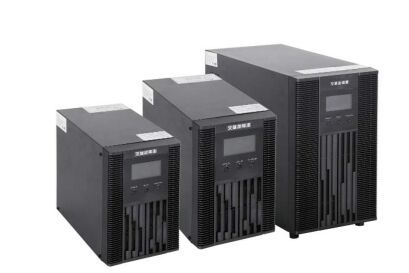UPS refers to an uninterruptible power supply. It is a backup battery power supply that can power the device for a long enough time so that the device can shut down normally when the power fails. It can prevent data loss and device stress caused by a hard shutdown.
The sine wave is the best waveform for electronic equipment. The input AC current is a sine wave, so for electronic equipment such as computers, it is best to use a sine wave UPS.

High-end UPS generates true sine wave power through the AC-DC-AC conversion process and generates sine wave power through automatic voltage regulation. A UPS with a sine wave output will prevent an accidental shutdown and electrical stress damage.
The phase of the UPS (such as single-phase UPS or three-phase UPS)(The Benefits of Single-Phase UPS) describes the number of electrical phases received and transmitted by the UPS. The UPS is rated in volt-amperes (VA) and ranges from 300 VA to 5,000 kVA. This rating represents the maximum load that the UPS can support, but it should not exactly match the power load you have. In order to leave room for growth, the best practice is to choose a UPS with a VA rating of 1.2 times the total load you need to support.
Power spikes (power surges) are common in thunderstorms. If the UPS is not used, the power spike may damage the computer.
Power failure, when the power is off. It can last for minutes or days. This usually occurs during inclement weather, power shortages, grid failures, or accidents.
When the voltage drops for a long time. Power companies sometimes lower the power voltage to prevent complete blackouts.
Voltage dips, the voltage drops suddenly in a short time(3kva online UPS manufacturers).
Overvoltage, which is like a power spike, but not that high. Its duration exceeds the peak power.
Frequency noise, where power is reduced due to system abnormalities.
Frequency changes, when the power frequency fluctuates more than usual.
Harmonic distortion, when the electrical signal is not ideal.